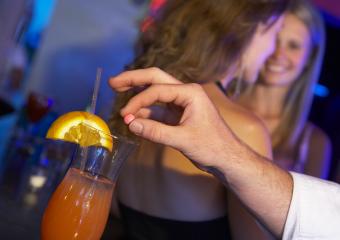Case report: special reasons, laced drinks
Background
We were instructed to represent JMM, a first-year university student, who had been arrested for drink driving after a night out with friends.
Police spotted JMM’s people-filled car driving through Milton Keynes in the early hours of the morning. They observed it pull into a multi-storey car park and stop. The officers approached JMM and smelled alcohol on his breath. JMM admitted he had drunk a single bottle of cider shortly before leaving the club but had consumed no other alcohol as he was the designated driver for the evening. The police arrested him and charged him with drink driving when he blew 40 microgrammes of alcohol in 100 ml of breath at the police station.
JMM’s mother approached us to assist her son who had by this time been told by a university friend that had been with him in the club that the friend had added alcohol to JMM’s soft drinks towards the end of the evening.
What we did
We met JMM and his parents at the first court hearing. We advised that there was no defence as JMM accepted he had been driving and that he had been over the limit at the time. There were no technical defence evident either in JMM’s instructions or in the prosecution evidence. We advised that JMM plead guilty but argue that he should not be disqualified because of the two special reasons we had identified, namely: a) the short distance driven; and b) the lacing of his drinks. We advised that the short distance argument might fail as on JMM’s account he had driven around half a mile.
We produced maps to show how far the car was driven and the time it would have taken. In borderline short distance cases, it is often better to focus on the time taken to cover the distance rather than the distance itself.
We spoke with JMM’s friend who gave an account of what happened but refused to sign a statement or attend court. We also commissioned an expert to produce a report showing what JMM’s alcohol level would have been if he had consumed the single cider he intentionally drunk and what amount of alcohol would be needed to get him to the alcohol level recorded by the police. Finally, the expert was asked to comment whether JMM’s and the spiker’s accounts were consistent with the alcohol reading from the police. Our expert concluded that both accounts were consistent with the police evidence and that JMM would have been below the drink driving limit had his drink not been spiked.
Because the spiker was not willing to come to court, we prepared a hearsay application that, if successful, would allow JMM to give evidence of what the spiker said to him about what was put in his drinks.
At court
We successfully persuaded the judge to allow JMM’s hearsay account of what the spiker had told him to go into evidence. We also called the evidence of JMM and the expert.
Outcome
The judge found that the distance driven by JMM was too far to meet the test for the short distance special reason; however, on the balance of probabilities he found that it was more likely than not that JMM’s drink had been spiked and that JMM would not have been over the drink driving limit but for that. He therefore exercised his discretion not to disqualify JMM from driving. The judge sentenced JMM to an absolute discharge, which means that there was no punishment and the sentence was deemed served immediately. The conviction was not recorded on JMM’s driving record meaning that although he was convicted it will never show up on his driving record and he does not need to tell insurance companies about it in future.
What did JMM have to say about us?
Both JMM and his parents were very happy with the outcome. His mother said, “it all happened just like you said it would. I didn’t really believe we’d win but you handled the case so brilliantly I’m over the Moon.”
If you are facing court proceedings for a drink driving offence, then please call one of our specialists in drink driving law today.

